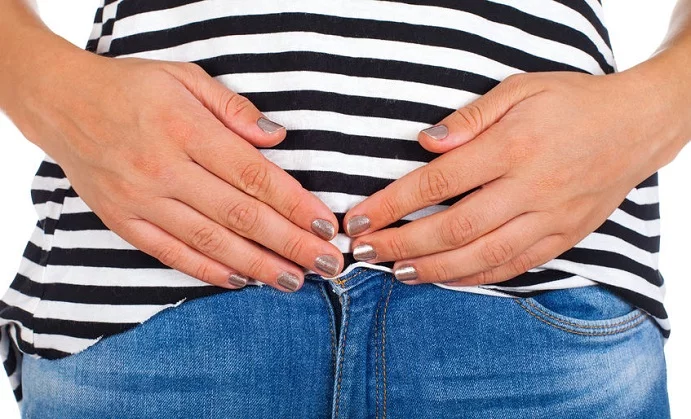Irritable bowel syndrome is a gastrointestinal disorder that many Americans and people worldwide face. In fact, as many as 20 percent of adults in the United States of America are estimated to experience symptoms of IBS. It can cause great discomfort and leave sufferer’s feeling bloated and in pain with bouts of diarrhea and/or constipation. It displays similar symptoms to many other gastrointestinal conditions such as Chronic Idiopathic Constipation and ulcerative colitis. That is why it is important to have it checked by a medical doctor to rule out any other causes and to be able to diagnose it correctly.
As with any gastrointestinal disorder, IBS can affect eating habits. Certain foods may aggravate the condition, leading to avoidance of that food, even if it is an important part of a healthy diet. IBS can even lead to a decreased intake of calories, and subsequent weight loss because of the discomfort it causes when food is taken in. Some novel research suggests that weight can also affect the onset of IBS, instead of the other way around. There is some speculation as to how exactly this could work, such as an imbalance of hormones produced by the gastrointestinal tract, but more research is required before conclusive claims can be made.
Avoiding Weight Issues
To avoid the complications of weight loss and weight gain, it is important to manage IBS and its symptoms with the correct lifestyle and diet. There are many diets which help to manage IBS, but most commonly recommended is to eat smaller meals during the day rather than a few large meals. This is so that the body does not have to process large amounts of food at a time, which could strain the gastrointestinal tract and then bring on or aggravate the symptoms of IBS.
Another common recommendation is to take in sufficient amounts of fiber. Dietary fiber bulks stool and thus makes it easier to pass. It also affects how other nutrients are absorbed. However, certain fiber can ferment and form gas, which may increase bloating. Therefore, it is recommended to increase dietary fiber intake slowly, 2-3 grams a day until the ideal 25 to 35 grams per day is reached and drink sufficient amounts of water (about 2 liters a day).
Certain foods should also be avoided as these cause weight gain and may worsen the symptoms of IBS. These foods include those which contain caffeine, large amounts of artificial sweetener, fat and dairy. Alcoholic beverages should also be minimized. A specific diet, known as the low FODMAP diet, is often used to manage IBS. This diet recommends avoiding foods with high levels of fructans (as in wheat), fructose, galactans (beans and soy), lactose and polyols (like sorbitol).
The Bottom Line
Weight management can be tricky when coupled with IBS. However, eating healthily not only helps weight management but also helps to reduce the severity and occurrence of some of the symptoms of IBS. As with most conditions, a healthy diet, with ideal amounts of fiber and plenty of exercise and water, not only maintains a healthy weight, but maintains a healthy and strong body too.
Do you want to find an effective IBS treatment? Check out our top rated IBS products












